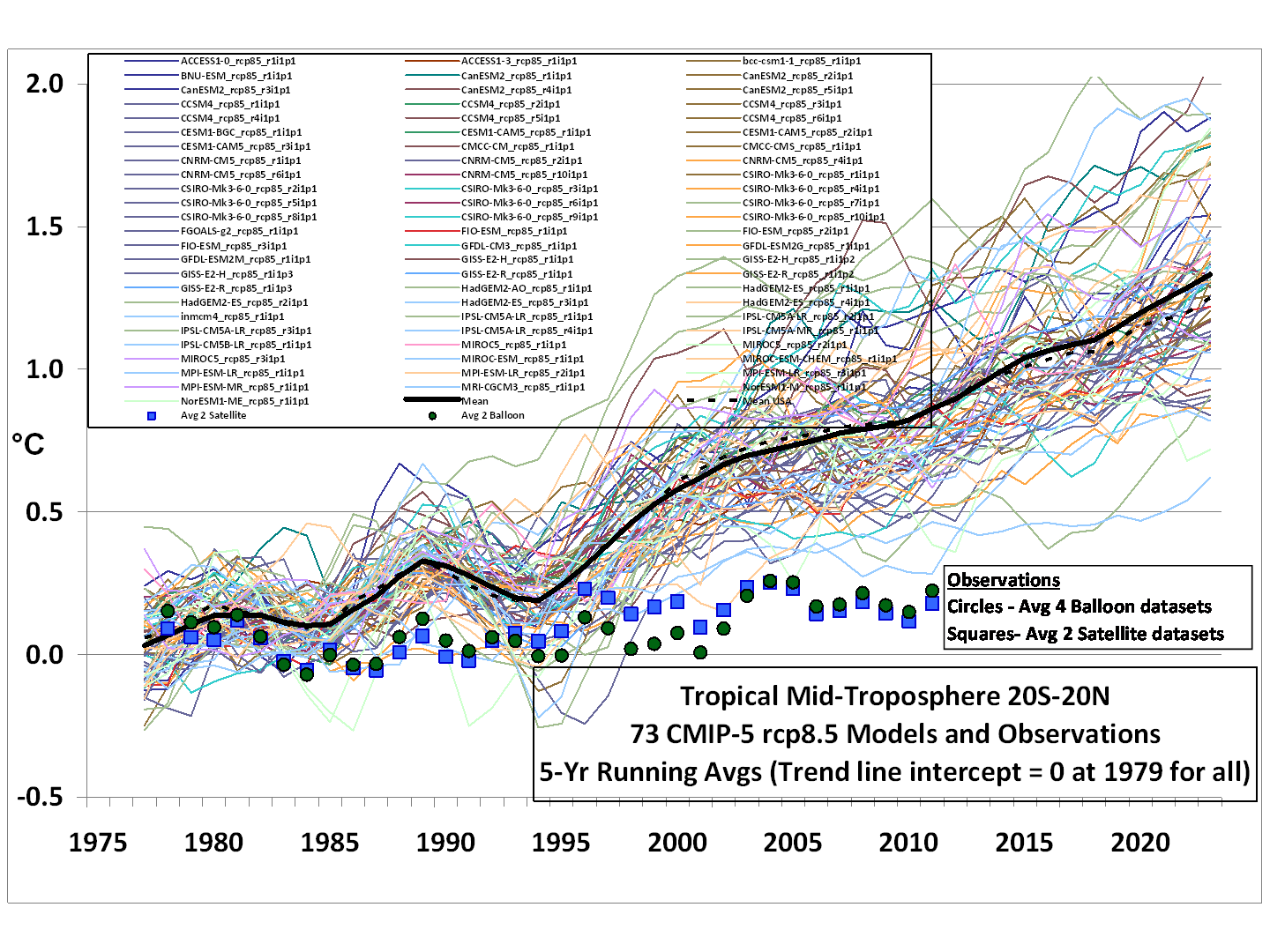![]()
Roy W. Spencer:
In response to those who complained in my recent post that linear trends are not a good way to compare the models to observations (even though the modelers have claimed that it’s the long-term behavior of the models we should focus on, not individual years), here are running 5-year averages for the tropical tropospheric temperature, models versus observations (click for full size):
In this case, the models and observations have been plotted so that their respective 1979-2012 trend lines all intersect in 1979, which we believe is the most meaningful way to simultaneously plot the models’ results for comparison to the observations.In my opinion, the day of reckoning has arrived. The modellers and the IPCC have willingly ignored the evidence for low climate sensitivity for many years, despite the fact that some of us have shown that simply confusing cause and effect when examining cloud and temperature variations can totally mislead you on cloud feedbacks (e.g. Spencer & Braswell, 2010). The discrepancy between models and observations is not a new issue…just one that is becoming more glaring over time.
It will be interesting to see how all of this plays out in the coming years. I frankly don’t see how the IPCC can keep claiming that the models are “not inconsistent with” the observations. Any sane person can see otherwise.



Now if some enterprising young researcher would only go through all those models to find out what major omission was left out of each model.
I recall for a fact that one famous computer model left out THE SUN!
Another ”forgot” about the warming effect of misplacing temperature data collectors.
But every one of those graph lines deserves a punchline.
Exclusive: China Translates 1,200-Page Rebuttal to Climate Change Agenda
Looks like the AGW crowd’s (junk science) “Every reputable scientist knows” bluff is being called by China’s scientists.